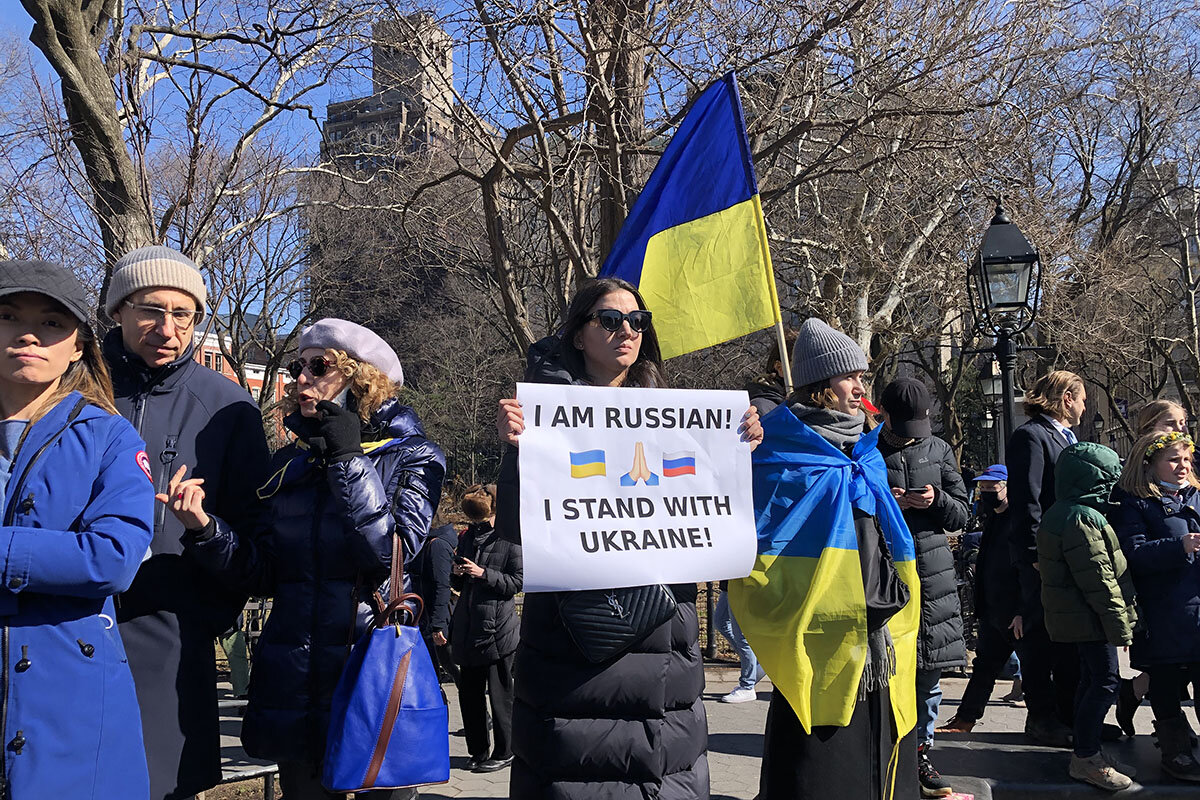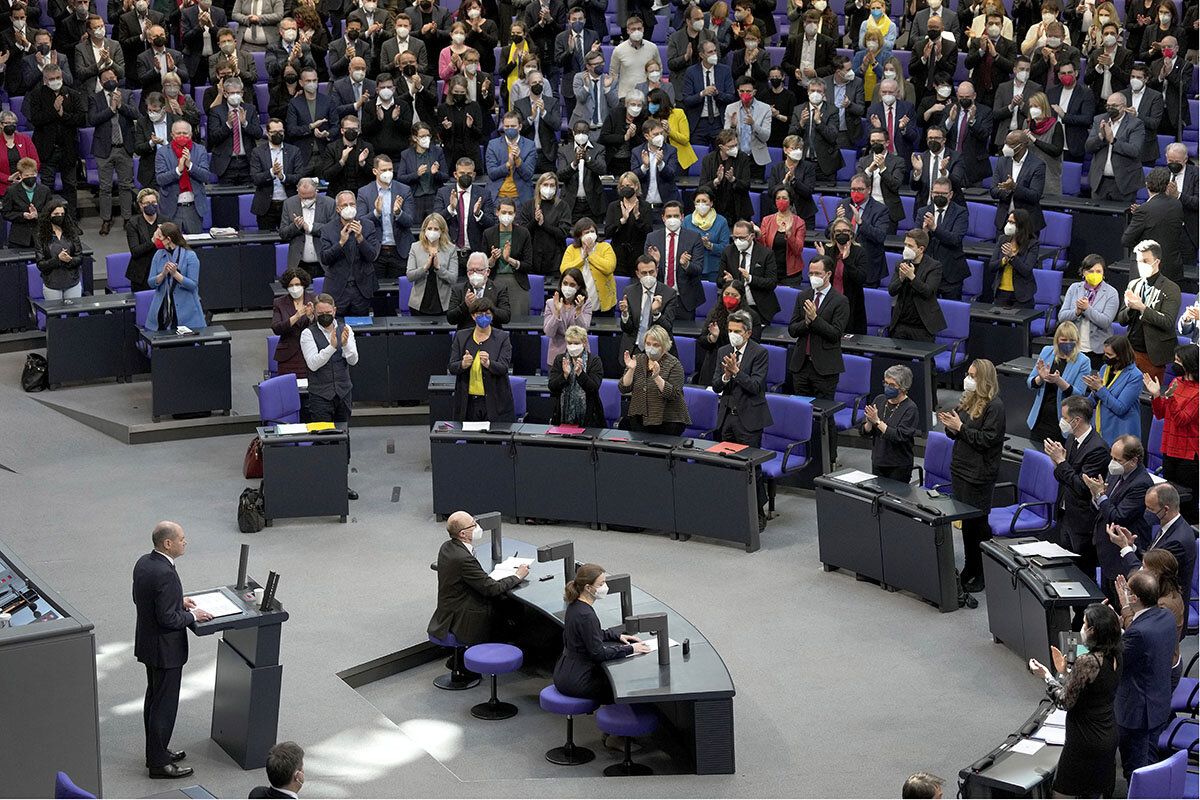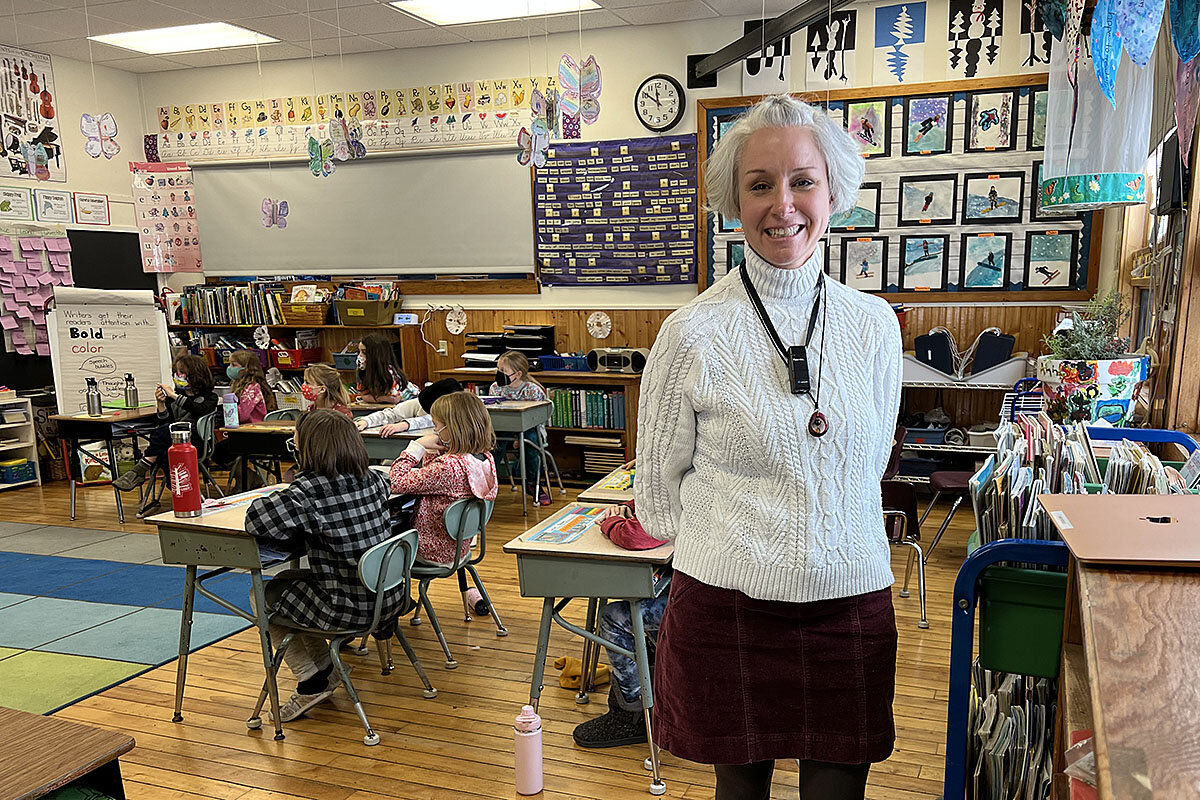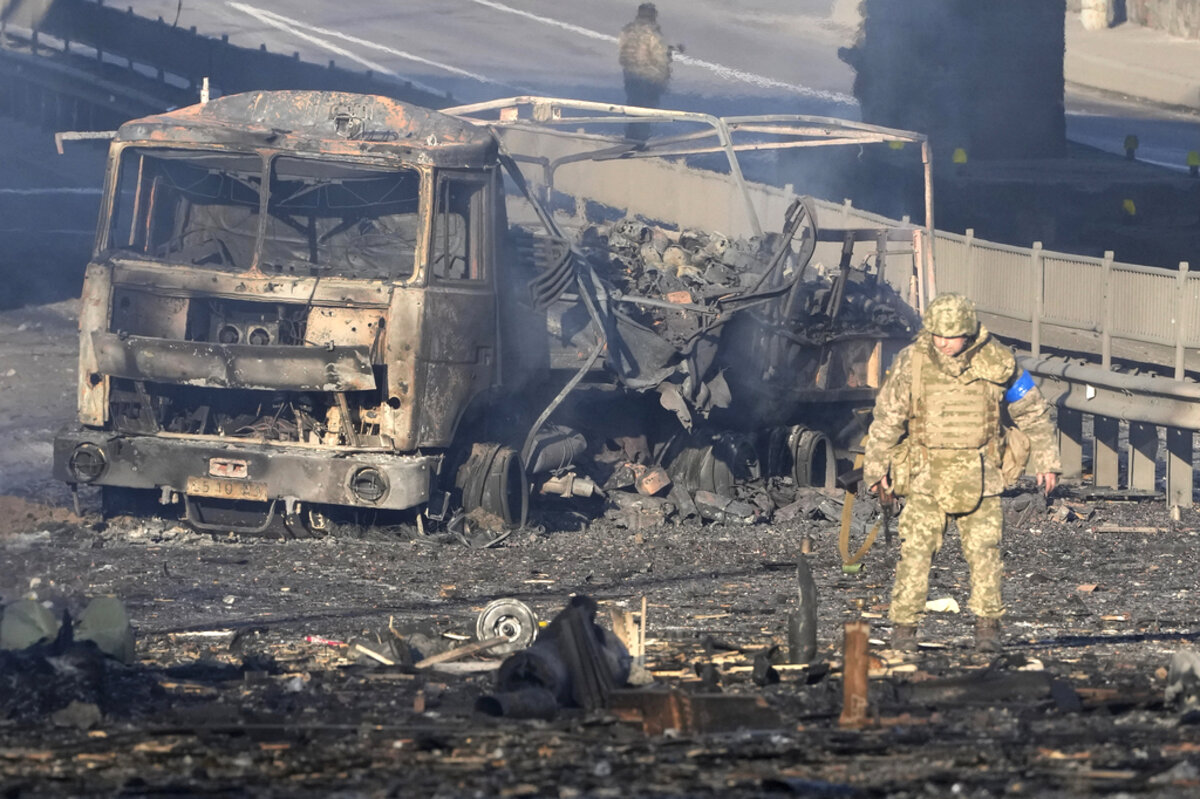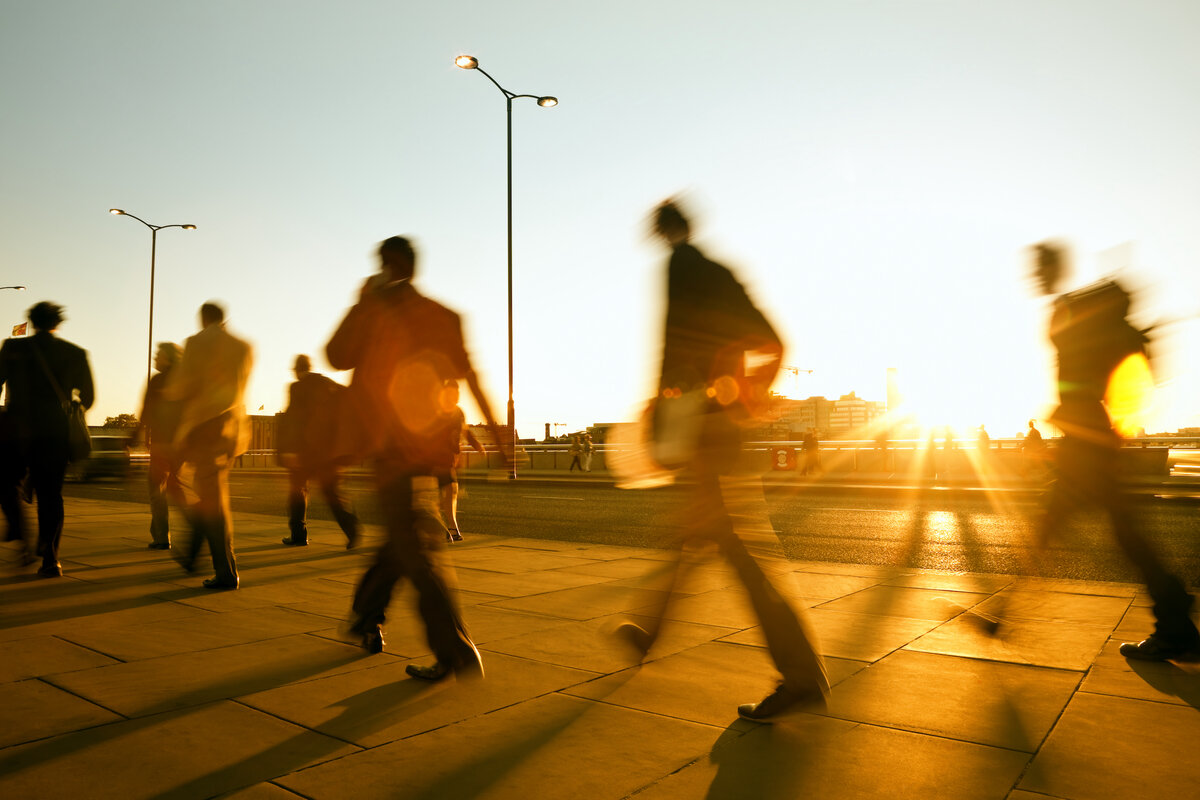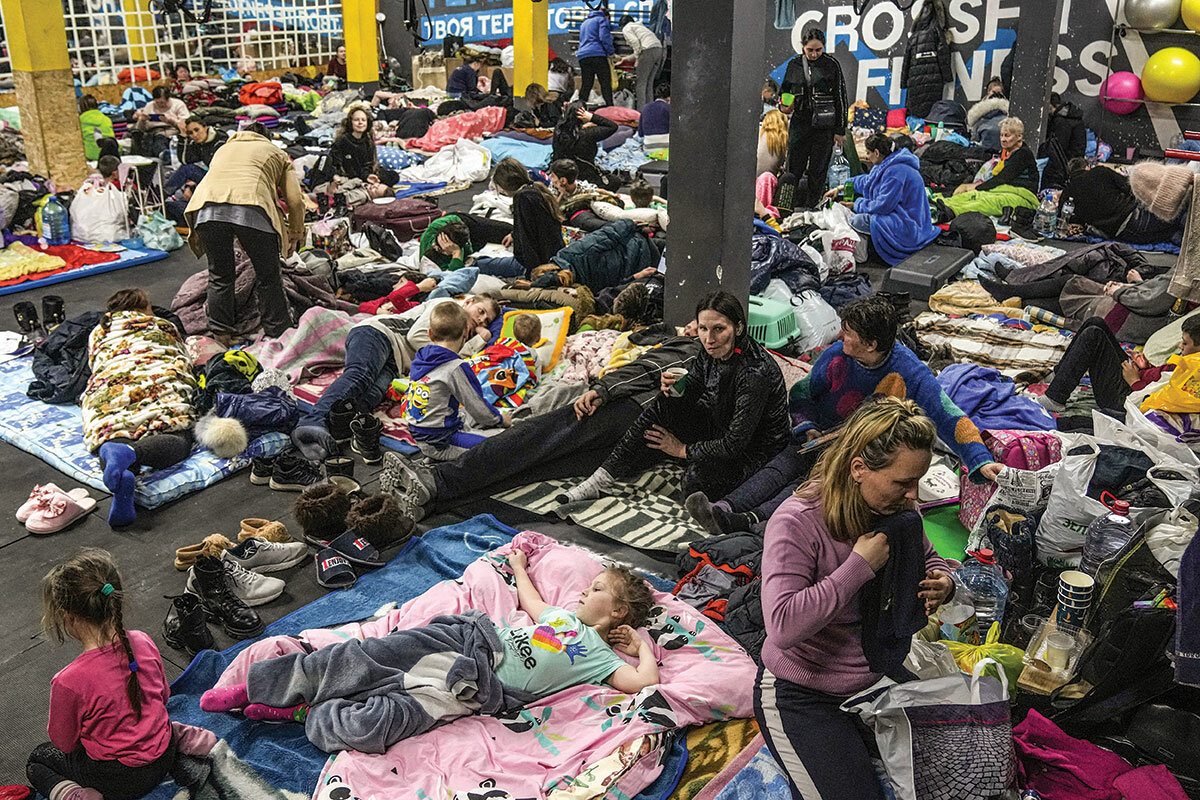Deterrence is based on a threat – but can involve patience with measures that take time to be felt and don't spark outright conflict. But escalating military action in Ukraine is spurring a widespread shift in many nations toward demand for tougher – and more immediate – action.
Monitor Daily Podcast
- Follow us:
- Apple Podcasts
- Spotify
- RSS Feed
- Download
 Amelia Newcomb
Amelia Newcomb
This week we’re doing something a little different with this “intro” space. Each day, we’ll address questions, however briefly, that are top of mind as the world confronts the Russian invasion of Ukraine. Be sure, of course, to check out our comprehensive Ukraine coverage in the Daily from correspondents in Ukraine, Europe, the United States, and beyond. You can easily connect with it all by going to our Ukraine page.
To kick things off, I turned to our international editor, Peter Ford, who is based in Paris and was the Monitor’s Russia bureau chief from 1994 to 1998. My question: What are we to make of President Vladimir Putin’s nuclear threats? Here’s his answer.
Well, at the very least they have raised the stakes in a situation already fraught with danger.
When Russian troops invaded Ukraine, Mr. Putin warned any countries that tried to stop them that they’d face “consequences that you have never encountered in your history.” That was seen as a veiled nuclear threat, and yesterday he openly ordered Russia’s nuclear forces to upgrade into “a special mode of combat duty.”
But might he actually order a nuclear strike? To be honest, it’s hard to be 100% sure; after all, very few analysts expected a wholesale invasion of Ukraine, and look what’s happened. Mr. Putin may not be unhinged, but recently he has not been acting as predictably and rationally as he once did.
On the whole, though, I think that the prevailing view in the West is that he put his nuclear deterrence force on higher alert so as to tighten the screws of escalation another turn. Perhaps he was hoping to deter Western powers from giving more support to Ukraine.
If that was his aim, he has failed. The European Union agreed Sunday night on an unprecedented military aid package worth €450 million ($504 million).
Britain’s defense minister, Ben Wallace, says London’s assessment is that Mr. Putin is stoking nuclear fears as a red herring, “to distract away from his troubles in Ukraine,” where his troops are making slower progress than expected.
Still, whatever the Russian leader has in mind, it’s hard to disagree with NATO boss Jens Stoltenberg when he says that Mr. Putin’s nuclear talk is dangerous and irresponsible rhetoric.




